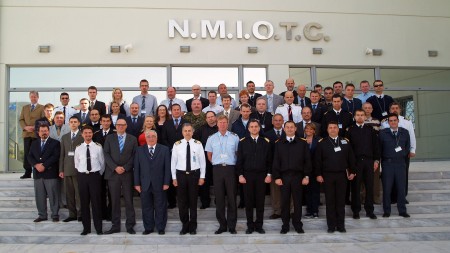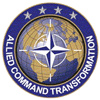From April 12 to 14 a total of 48 professionals participated in the Cooperative Development Team Training at the NATO Maritime Interdiction Operational Training Center (NMIOTC) in Crete. An intense three-day program provided them with an insight into the theories and processes of producing ADL courses as well as with first-hand practical experience.

About ADL and e-learning
Advanced Distributed Learning (ADL) is e-learning based on the SCORM standard. This standard, established and maintained by ADL Labs in the US on the basis of a US DoD initiative, is well established in NATO and also represents the production standard of the PfP Consortium’s ADL Working Group. Advanced Distributed Learning to this standard supports interoperability of content accross compliant NATO and non-NATO platforms as well as flexibility when it comes to combining content for different audiences and learning scenarios.
About the CDT Training
Based on the proven collaboration in establishing ADL capability within NATO and PfPC countries, the event was organized and conducted as a joint project of NATO SACT, US Joint Forces Command, the International Relations and Security Network (ISN) from Switzerland and the US DoD ADL Initiative. The NATO Maritime Interdiction Operational Training Center (NMIOTC), located at Souda Bay near Chania, Crete, hosted the event and provided the infrastructure for lectures and practical sessions.
 |
 |
 |
 |

|
The three days provided the participants with an introduction to all major steps of producing effective, focused and cost-efficient e-learning, with referrals to standard instructional design processes, the NATO procedures and the Content Production Process Kit of the PfPC ADL Working group.
Key Topics Covered
- NATO training needs analysis (TNA)
- Task analysis and performance gap analysis
- ADL and SCORM
- Learning objectives and assessment
- Content production process
- Project management
- Instructional Design
- Multimedia Design
- Evaluation of training
Practical assignment
While some of the general theories were taught in plenary sessions, the more specific knowledge and skills were provided in special tracks for managers, instructional designers and multimedia designers – the three roles making up a typical cooperative development team (CDT). To provide all roles with practical work experience, temporary CDTs were established and tasked to build a small section of a course on «Improvised Explosive Devices». The practical work also involved the use of the open-source ILIAS Learning Management System and its integrated SCORM Editor, both playing an important role in the ADL capability building of the PfPC ADL Working Group.
The course culminated with the presentation of the e-learning content produced by each team under high time pressure. Based on what the teams, mostly newcomers to ADL, were able to build and on the overall feedback of participants, the training may be rated as a great success. Participant feedback will be utilized to further improve the training in the future.
Participants involved in establishing ADL in their institutions may get additional support by joining the PfPC ADL Working Group and participating at upcoming ADL related events.
Upcoming NATO / PfPC ADL events
ACT ADL Forum in Norfolk, Virginia USA:
August 30 to September 1st, 2011
Contact: paul.thurkettle@act.nato.int
PfPC ADL WG Meeting in Tbilisi, Georgia:
November 1st to November 3, 2011
with National ADL Day on November 4
Contact: schilliger@sipo.gess.ethz.ch

